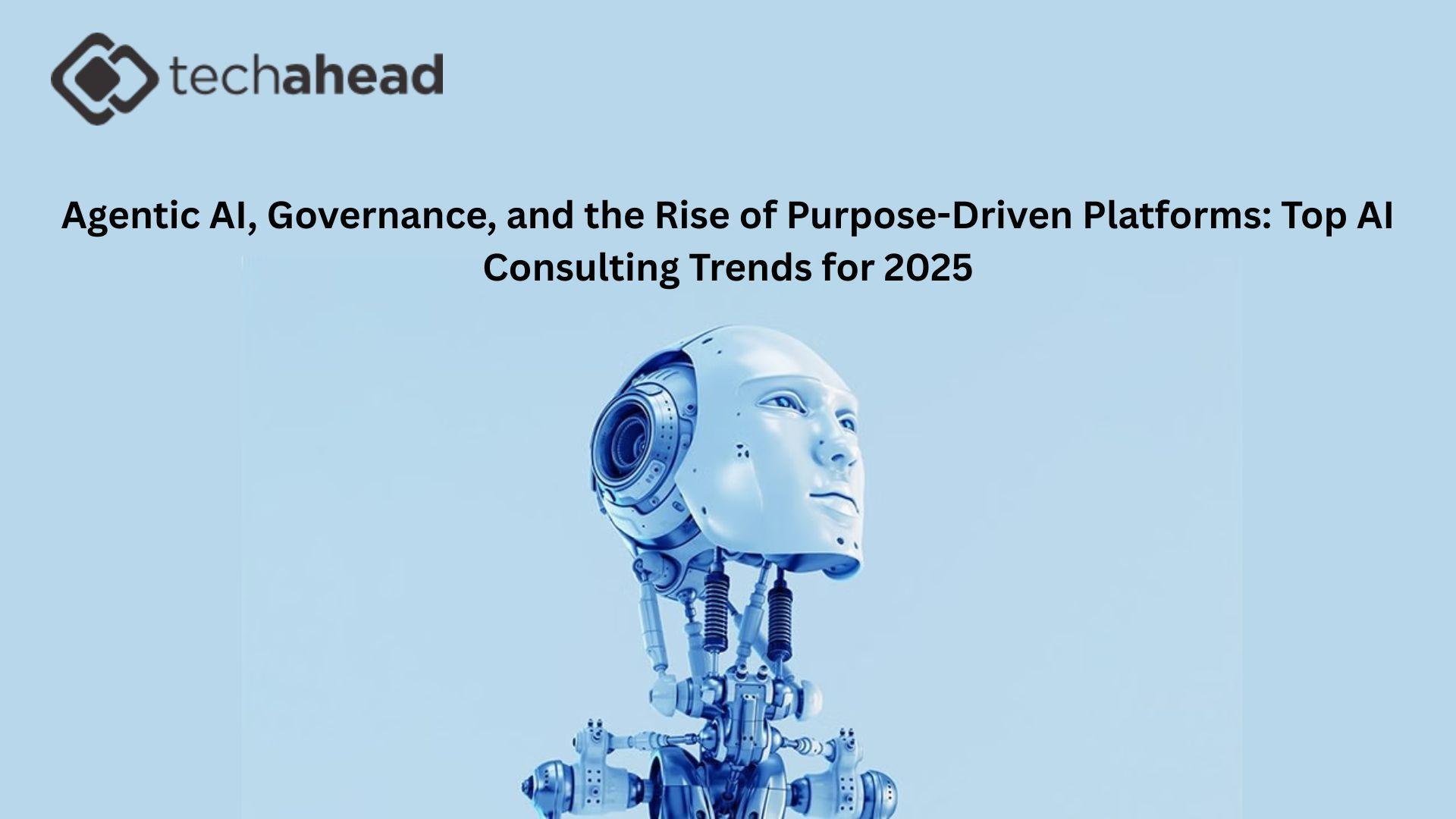Imagine a suite of digital agents autonomously managing an organization’s routine decisions optimizing supply chains, automating customer service, even making small procurement choices while adhering to regulatory, ethical, and environmental constraints. That isn’t sci-fi; it’s what AI Consulting firms are being hired to deliver in 2025. Simultaneously, the demand for apps that embody purpose, privacy, and performance forces every ios app development company to rethink what it means to build for impact. Let’s dive into the trends reshaping how consulting delivers value, and by extension, how this is pushing mobile app development toward an era of purpose-driven platforms.
1. Agentic AI Becomes Mainstream
-
Definition and Capabilities: Agentic AI are systems capable of taking autonomous actions based on goals, not just reacting or following scripted workflows. They evaluate context, make decisions, sometimes adapt goals. Consultants are increasingly designing architectures and safety guardrails for them.
-
Use Cases: Fraud detection, customer service bots with conditional branching, supply chain optimizations (routing, logistics), autonomous monitoring and alerting systems. These agents may adjust thresholds, retrain sub-models, send escalations.
-
Challenges: Ethical oversight, model drift, unintended consequences, responsibility flows. AI Consulting must help clients define accountability, human-in-the-loop where needed, fallback behavior.
2. Responsible, Sustainable, and Explainable AI as Must-Haves
-
Regulatory Demand: Regulations like the EU AI Act require explainability, fairness, transparency, audits. Consultation now often includes building “trust layers” graphs of decision lineage, logging, traceability.
-
Environmental Impact: There’s increasing awareness that training large models consumes energy; AI Consulting is being asked to optimize for sustainability smaller models, efficient hardware, reuse of models, carbon offsetting, lifecycle of devices in the ecosystem.
-
User Trust & UX Integration: Consumers reject “black box” AI. Successful ios apps provide transparency about data usage, offer controls for personalization/opt-out, consent screens, local processing. All part of responsibility.
3. Enterprise-Wide AI Rollout & Cultural Change
-
Beyond Isolated Teams: Rather than siloed ML or data science labs, AI is being embedded into functions: HR, Finance, Legal, Ops. That requires new consultation models for stakeholder alignment, data governance, risk management, and cross-team collaboration.
-
Talent & Organizational Structure: More roles for “AI Architects,” “Agentic Engineers,” “Ethics Leads.” AI Consulting firms themselves evolve, retraining staff, creating new practice groups. Client organizations shift toward product-centric AI teams rather than project basis.
-
Metrics & ROI Pressure: Every initiative is judged by outcome: cost savings, revenue growth, risk reduction. Time to measurable impact is shrinking budgets follow deliverables in shorter cycles.
4. Implications for ios app development company and Mobile-First Platforms
-
AI-Driven UX on Mobile: Increasingly, apps must integrate intelligent features: predictive content, dynamic UI elements, real-time personalization. For instance: “smart home” apps that adjust based on user behavior, health apps that adapt based on sensor input. An ios app development company needs strong ML / data science support or tight collaboration with consulting partners.
-
Offline / On-Device AI: Privacy, latency, network reliability push for more processing on device. Apple’s frameworks (Core ML, Create ML) are becoming powerful, enabling more ML tasks locally. The ios app development company that can make models small and inference efficient will be in demand.
-
Security & Privacy by Design: With new regulations, apps must integrate stronger authentication (biometric, hardware secured enclaves), data encryption, secure communication, audit logging. ios app development company workflows must include threat modeling, privacy impact assessments.
-
Immersive Tech & Multisensory Experiences: AR/VR, spatial computing, mixed reality: users expect more immersive interactions. Apple’s hardware (Vision Pro etc.) increases pressure. Apps aren’t just “mobile screens” but extended reality platforms in some use cases. ios app development company teams that build AR/VR competence will be preferred.
5. Emerging Technologies and Innovations Shaping the Horizon
-
Multimodal Large Language Models: These are models that understand and generate not just text, but images, audio, video. AI Consulting practices are exploring how to embed these into workflows and apps. For example, image + text input for customer support; audio + video summarization.
-
Simulations & Digital Twins: Industries like manufacturing, logistics, healthcare use digital twins to model operations. AI Consulting helps design, validate, and manage these. Mobile apps may serve as interfaces for interacting with these twins: monitoring dashboards, field inspection tools.
-
5G / 6G & Edge Networks: Faster networks + edge compute open possibilities for near-real-time apps with lower latency. For ios apps, features like live AR collaboration, streaming, remote diagnostics get better. ios app development company with capabilities for optimizing network use, caching, offline support become more valuable.
-
Blockchain / Decentralised Identity for Trust: For identity verification, provenance, secure sharing, decentralized id (DID) solutions are trending. AI Consulting partnerships often include designing identity frameworks so apps (iOS especially) that involve sensitive data, health records, payments comply with higher trust.
Conclusion
The future of AI Consulting is no longer about advising it’s about building: autonomous agents, ethical systems, sustainable platforms that deliver across functions. And in parallel, the role of the ios app development company is being redefined: not just building front-ends but embedding AI, ensuring privacy, performance, and delivering immersive experiences. In 2025 and beyond, those who align consulting strategy, mobile development, ethics, and user trust are those who not only survive but lead. If your roadmap doesn’t account for agentic AI, governance, or immersive mobile UX, you risk being overtaken. The time to invest isn’t tomorrow it’s now.

